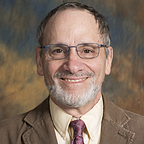Mendel Letters 75 — Politics
April 30, 2022
Dear Mendel,
It wasn’t until I was an activist and a historian myself before I understood your evolution from silence to caution to being on the front line.
While I was growing up in the 1950s and 1960s, you never discussed your politics, even which political party you were registered for, but since we lived in the Bronx, I assumed you were a Democrat. The local assembly member, a machine Democrat, and his family briefly lived in the same apartment building as we did and you were friendly with the family. We discussed current events issues in the newspaper and radio, but I don’t remember you ever expressing a point of view.
Your older sister Kate once told me that in the 1930s she was a Socialist. When I asked why she claimed it was because they had the cutest boys and the best parties in the neighborhood. I didn’t ask her about you. Your father was a member of the ILGWU, the International Ladies Garment Workers Union, a “socialist” union, but his English was limited and we didn’t have discussions. You did love to sing Paul Robeson songs, I don’t know if that is suggestive of anything.
For you and for most working-class Jews in the United States the two events that defined your politics were the European Holocaust and the Rosenberg trial and execution. I think these events drove you into silence. After the Holocaust and the murder of six million Jews by Nazi Germany, Jews in the United States did not want to stand out as different from main stream Americans, the “goyim” (non-Jews), and as the Cold War between the United States and the Soviet Union heated up, it was seen as dangerous to be identified as politically “left.” Somehow I learned that before Warren and I were born, Mommy and her sister Gert were taking night classes at CCNY and signed an anti-nuclear petition. Apparently this led to fearful hysteria because Aunt Gert’s husband, Uncle Abe, was studying to become an accountant and you and he worried this could cause him to be blacklisted.
Julius and Ethel Rosenberg were two New York Jews accused of being atomic spies for the Soviet Union during World War II. They were arrested, tried, convicted and executed in 1953. There was some evidence that Julius was involved, but Ethel was basically executed because she refused to testify against her husband. The Rosenberg’s left behind two young boys. You also had two young boys and the execution of the Rosenberg drove you deeper into non-political silence.
I remember in the 1960s you moved from silence to caution in your own way. You decided it was important to express your opinions to elected officials so you would mail them brief messages on postcards. You told me you sent post cards because they wouldn’t be able to ignore what you wrote. I don’t know if you really believed that or sent postcards because they were cheaper.
When I became active in the Vietnam anti-war movement as a college student in 1967 you “ordered” me not to participate and threatened to leave me in jail if I was arrested. But things changed, especially as the war dragged on the threat of me being drafted came closer. After soldiers opened fire on student protesters at Kent State University in Ohio and Jackson State in Mississippi in 1970 you joined me in anti-war protests. You were starting to become a radical.
One really funny “political” story. After you closed the Queens luncheonette in the early 1970s you got a job at the Brooklyn College cafeteria. It was a long subway ride and you applied to work at a Lighthouse coffee stand in the Manhattan building that housed federal offices. Before your interview, you were worried you would be asked about my political activism. To your surprise, they were more interested in your Brooklyn College supervisor who had some leftwing affiliation in the 1930s. They asked if you ever discussed politics with him. I think your answer was “I only made sandwiches.”
Things really changed when you moved from the West Bronx to COOP City, but that is another story and another letter.
Your son
Hard copies of these typed letters were discovered in an old camp trunk in the basement storage facility of one of the few buildings that remain standing in this Brooklyn neighborhood. The building is quite decrepit and is scheduled for demolition. The letters were found in November 2048 by a teenager who believes they were written by his great-grandfather. The letters are addressed to Mendel, the letter writer’s father, who appears to have been dead for at least six years when his son, whose name we are unsure of, started to write him. The son appears very agitated in some of the letters. With permission from the family, we are publishing them on the date they were written, only 28 years later.
Follow Alan Singer on twitter at https://twitter.com/AlanJSinger1
